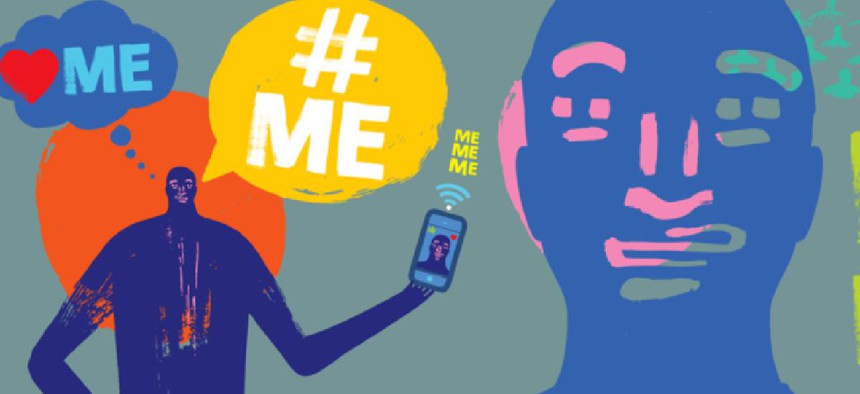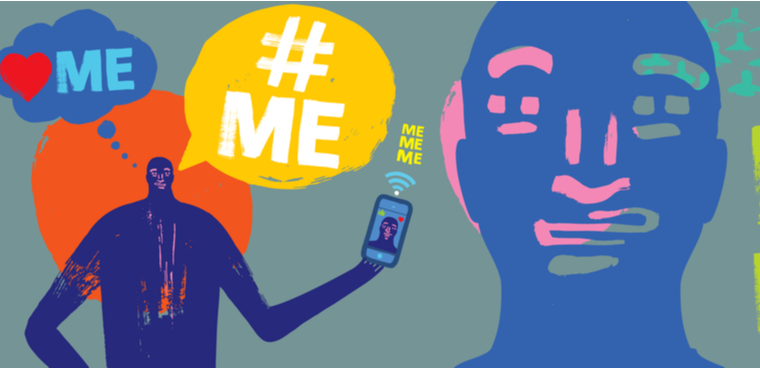What do narcissists do to team performance?

Steve Kelman shares suggestive new research -- and offers some ideas for how federal managers might act on it.

I read lots of academic research articles, but it’s relatively rare to find one that is investigating an interesting phenomenon, using good measures and generating interesting, relevant results. The new issue of Academy of Management Journal has just such an article, “Examining the ‘I’ in team,” by Emily Grijalva of the Olin Business School at Washington University, together with Timothy Maynes, Katie Badura, and Steven Whiting. The research explores the impact of higher levels of “narcissism” (selfishness or self-absorption in more everyday language) on the performance of the group. The authors' data come from NBA individual basketball players and teams.
Their title comes from the often-used adage, “there is no ‘I’ in team.” The hypothesis they want to test is that workgroups with a lower average level of selfishness will work together better and thus coordinate their efforts better. Then they suggest that better coordination among group members will improve the group’s performance.
This is a plausible idea, and one worth testing. The hard challenge is figuring out how to measure the ideas of selfishness in a group, coordination, and performance. And that’s the brilliance of this paper.
Let’s start with narcissism. The authors look at Twitter pages for NBA players (most are on Twitter), both profile pictures and tweets. For profile pictures, a group of trained research assistants who were not otherwise part of the research developed a coding guide for the pictures – “photos in which players were seen asserting physical dominance (e.g. flexing muscles) or displaying their bodies (e.g. shirtless)” were rated high on narcissism, while those “in which players were seen spending time with family or friends” were rated less selfish.
The two research assistants then rated each of the players. Where the two disagreed, they discussed until they reached agreement. Four research assistants also classified a random sample of player tweets over a few-month period as either “narcissistic” or not, using a guide published by the American Psychiatric Association on characteristics of narcissism. They used a similar procedure to discuss cases of different ratings of the tweets. These findings at the level of the individual player are then aggregated to get average group scores.
How did they measure team coordination? They used a count of assists for baskets in a game – passes that move defensive players out of proper position and make it easier for players to take shots that are inadequately defended, increasing the possibility of scoring. The player who assists this way reduces his personal chance of scoring, but increases the team’s score.
The most straightforward thing to measure was what in organizations, especially government ones, is often hardest to measure -- namely group performance. They wanted to measure whether lower selfishness increased the chances the team would win, and used the website Sportsbook.com to get probability of winning information for each player's team, and looked at whether low selfishness made it more likely than the baseline to win.
In terms of extending these results to group situations beyond basketball, it should be noted that these results require that good group performance is facilitated by good coordination within the group. If coordination does not help good performance – for instance, if group members work independently of each other – there is no reason based on these findings to believe that having lower levels of selfishness will help group performance.
Although we can’t be sure that these findings apply to similar work situations in different organizations, the virtue of the paper is that it generated good data for phenomena that are often very tough to measure, and that since the underlying dynamics of human behavior here are likely similar, our best guess is that these findings would apply to your organization.
The more tricky thing for managers – as opposed to people for whom it’s enough that these findings are “interesting” – is to ask whether there is anything we in the government can do to encourage less selfishness among members of our teams. It would be nice to be able to screen for lower selfishness in hiring (which may bring benefits other than improved coordination, including improved individual performance), but this may be hard to do within the government's existing HR frameworks.
Without being sure of exactly what your organization can and cannot use as a screening criteria, I think it may be possible to screen on the ability to get along well with others – any readers agree or disagree with me on this? That would seem to be another way to locate less-narcissistic candidates. Also, we often have more discretion in promotion than in initial hiring decisions – and we will also have much more information about the employee’s level of selfishness – so it may be feasible to get less narcissistic employees into more senior positions.
If I may be excused for a metaphor from a different sport than basketball, this paper is a home run. Read it to see what smart academics are up to!


